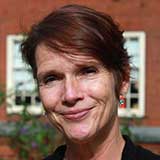 As a three-times member of the national judging panel for the UK winner, I was invited to attend the awards ceremony for the EU Health Prize for Journalists 2013, at the European Commission in Brussels on 7-8 April 2014. And in the same way as last year, this meant an intense couple of days with some 60 journalists and jury members from all over Europe, well attended by EU officials, and hosted by the EC’s Directorate-General Health and Consumers (DG SANCO), in its stunning Berlaymont building. The prize is in its fifth year and is given for journalism covering “Europe for patients” themes ranging from cancer and rare diseases to prudent use of antibiotics, mental health, pharmaceuticals, and vaccine scares, to name a few.
As a three-times member of the national judging panel for the UK winner, I was invited to attend the awards ceremony for the EU Health Prize for Journalists 2013, at the European Commission in Brussels on 7-8 April 2014. And in the same way as last year, this meant an intense couple of days with some 60 journalists and jury members from all over Europe, well attended by EU officials, and hosted by the EC’s Directorate-General Health and Consumers (DG SANCO), in its stunning Berlaymont building. The prize is in its fifth year and is given for journalism covering “Europe for patients” themes ranging from cancer and rare diseases to prudent use of antibiotics, mental health, pharmaceuticals, and vaccine scares, to name a few.
It is almost impossible to describe the buzz of the meeting—to be surrounded by so many journalists and editors, from so many different countries, speaking so many different languages, and expressing so many different interests, was fantastically exciting.
During the Tuesday, we heard about European tobacco policy and a campaign entitled “Ex-Smokers are unstoppable,” which has made great progress since its inception in 2002. It aims primarily to prevent young people from taking up smoking and its messages are all about the benefits of not smoking, rather than the harms associated with the habit, and its messages are communicated via all possible multimedia and comms channels, and through the iCoach electronic coaching tool. The accompanying promotional film was very cleverly done—turning tobacco advertising messages on their head, with young and beautiful people having a fabulous time and pursuing exciting-looking activities—without using tobacco.
Another highlight of the campaign has been its 2011 collaboration with Barcelona’s football club, “Quit smoking with Barça.” The ensuing panel discussion by MEPs was lively and at times rather contrary. (By way of a bit of self promotion for The BMJ, I cannot recommend highly enough that you read Krishna Chinthapalli’s fascinating observations column—Exporting disease, disability, and death, which explains how the tobacco industry leveraged political power in the US to ensure its free trade in the emerging economies.)
The afternoon’s highlights included a presentation by John Ryan, acting director of public health, at DG SANCO, who explained the main achievements of the mandate 2010-14 and anticipated an increasing focus on obesity and alcohol. We also heard about the Commission’s three scientific committees that deal with non-food safety in the EU, their composition, and their remit, before a concise and informative summary of the crossborder healthcare directive, which guarantees EU citizens the right to receive planned healthcare in any EU country.
The actual awards ceremony took place in the evening, again at Berlaymont. The event turned into a fabulous party, and the three winners were certainly worthy of their prize. Tonio Borg, European Commissioner for Health, announced the winners: Dutch journalist Henk Blanken received the first prize for his article about a young man having deep brain stimulation surgery for Parkinson’s disease; second were German writers Christiane Hawranek and Marco Maurer in “The Patient Traffickers,” which focused on the relation between dubious medical tourism agencies and German hospitals, seen as a business with no regulation or quality control; and the third went to Danish investigative reporter Mette Dahlgaard, who wrote about a sperm donor who is liable to have passed on a serious form of cancer to half of the children he fathered, and who tried to warn the public health authorities that numerous children may have inherited the disease. Variety, quality, interesting topics, and excellent research—and no sense of a Babylonian confusion of languages: although the minority of guests spoke English as their mother tongue, communication flowed throughout the two days, and it was all over far too quickly. Very well worth attending.
Birte Twisselmann is web editor and obituaries editor, The BMJ.
